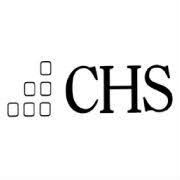The COVID-19 Pandemic's Impact on Medical Billing

The existence of the COVID-19 pandemic has resulted in additional stress for families and individuals trying to figure out how to pay their medical bills. If a family is struggling with job loss or experiencing the virus first hand, medical billing may be at the top of their worries. The pandemic has added brand new concerns for Americans struggling with healthcare costs, but there may be some solutions for those concerns, even if they are also currently facing unemployment.
COVID-19 and the CARES Act
The CARES Act is most well-known for providing the temporary extra $600 a week in unemployment benefits for those who lost their jobs as part of the COVID-19 pandemic. However, the CARES Act provided a number of other economic provisions that may help with COVID-19 medical bills. These additional measures included housing assistance and the ability to make withdrawals from retirement accounts.
Although these benefits are not directly related to medical bills, they do reduce the overall financial strain upon a family. This in turn can make it easier for families to pay their medical bills if they are experiencing a financial burden due to the COVID-19 pandemic.
The CARES Act also made it possible for individuals to include over-the-counter medications as qualified medications for their Health Savings Accounts, or other type of medical spending account. Menstrual products may also be paid for through a medical spending account.
Families First Coronavirus Response Act (FFCRA)
Since the COVID-19 pandemic was such a new medical emergency, many families worried about how they were going to have to pay for potentially devastating diagnostic bills. However, the FFCRA provided free testing for anyone with insurance. The FFCRA prevented insurance companies from charging copayments, deductibles, telehealth fees or coinsurance if you are getting tested for the Coronavirus. Future vaccines should also be covered by insurance, according to the FFCRA.
Telehealth Costs Related to COVID-19
Although telehealth visits have been available for a while, the emergence of COVID-19 has made them a necessity for many patients. That change in the way that providers offer care has actually benefitted patients. Healthcare providers, including mental health practitioners, responded to the pandemic by providing lower cost or free services to anyone using telehealth methods of care.
Articles from Davia Ward
View blog
There comes a time in everyone’s life where they begin to feel lost and unmotivated. This type of fe ...

Selecting a life coach can be a daunting task. After all, you’re choosing someone that will deeply i ...

Telehealth refers to medical services provided to patients without being in the same physical locati ...
You may be interested in these jobs
-
Surgical Services/OR Tech
5 hours ago
APN Consulting Apple Valley, United States· EXT- Sharee EdwardsFacility Name: *** · Unit: *** · Shift:Day 3x12-Hour (06:30 - 19:00) · Day 3x12-Hour (09:30 - 22:00) · Overtime Multiplier: 8 regular hours in a day OR 40 regular hours in 1 week : 1.3% · Double Time Multiplier: None · Charge Nurse: *** · On Call: *** · Call ...
-
Service-Advisor
5 hours ago
South Bay Hyundai Torrance, United StatesRESPONSIBILITIES · Maintain Customer Service Index (CSI) rating as set by dealership service manager · Responsible for the entire customer service experience from the service drive until vehicle is turned back over to the customer · Schedule appointments and generate estimates · ...
-

Physician
5 hours ago
Community Health System Bullhead City, United StatesJob Description · Western Arizona Regional Medical Center (WARMC) in Bullhead City, AZ is seeking a BE/BC Vascular Surgeon. · * Hospital employed opportunity joining a multispecialty group · * Physician must be board-certified or board-eligible in the United States · * Must have ...


Comments